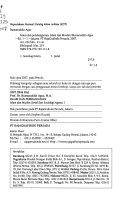How to Keep Your Head Above Water When Life Keeps Dragging You Down
If you’ve ever felt overworked, overwhelmed, or just plain unlucky, this book is for you. Through this collection of stories, wisdom, and practical advice, readers will meet four ordinary women who have faced extraordinary life challenges. Together, they have a history of six marriages, ten children, four stepchildren, six dogs, two miscarriages, two cats, a failed adoption, widowhood, and foster parenthood. They have built companies, lost companies, and sold companies. One of them was shot and left for dead on a tarmac in South America, and two lived through the deaths of spouses. Raising babies and teenagers together, they have known celebrity and success along with loneliness and self-doubt. This book started simply with four friends getting together at the kitchen table to talk about their lives. Week by week and story by story, they realized their support of each other could help other women struggling with life’s myriad issues of work, family, and love, as well as the big questions of life and death. For over a decade, the power and strength of their collective friendship has enabled these women to not only survive but to thrive. The remarkable results are in this collection of lessons and stories and wisdom, which can help any woman turn any misfortunate event into a joy-filled opportunity.
Jaclyn Zimmerman works in Washington DC for Congresswoman Mazie Hirono
from Hawaii; Jenna Zimmerman works at the Food Network in New York City, and
my son J.B. Zimmerman is a junior at the University of Arizona in Tucson. And I
choose to remain close to all my stepchildren, Laura Wilkinson and Meredith and
Christopher Eves. “Divorce has been unbelievably painful, so the next book I
would like to write will be 'This Is Not the Husband I Ordered.' But with change
comes ...










